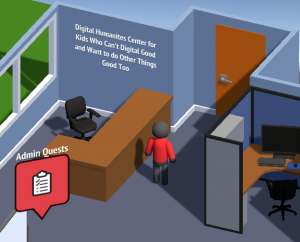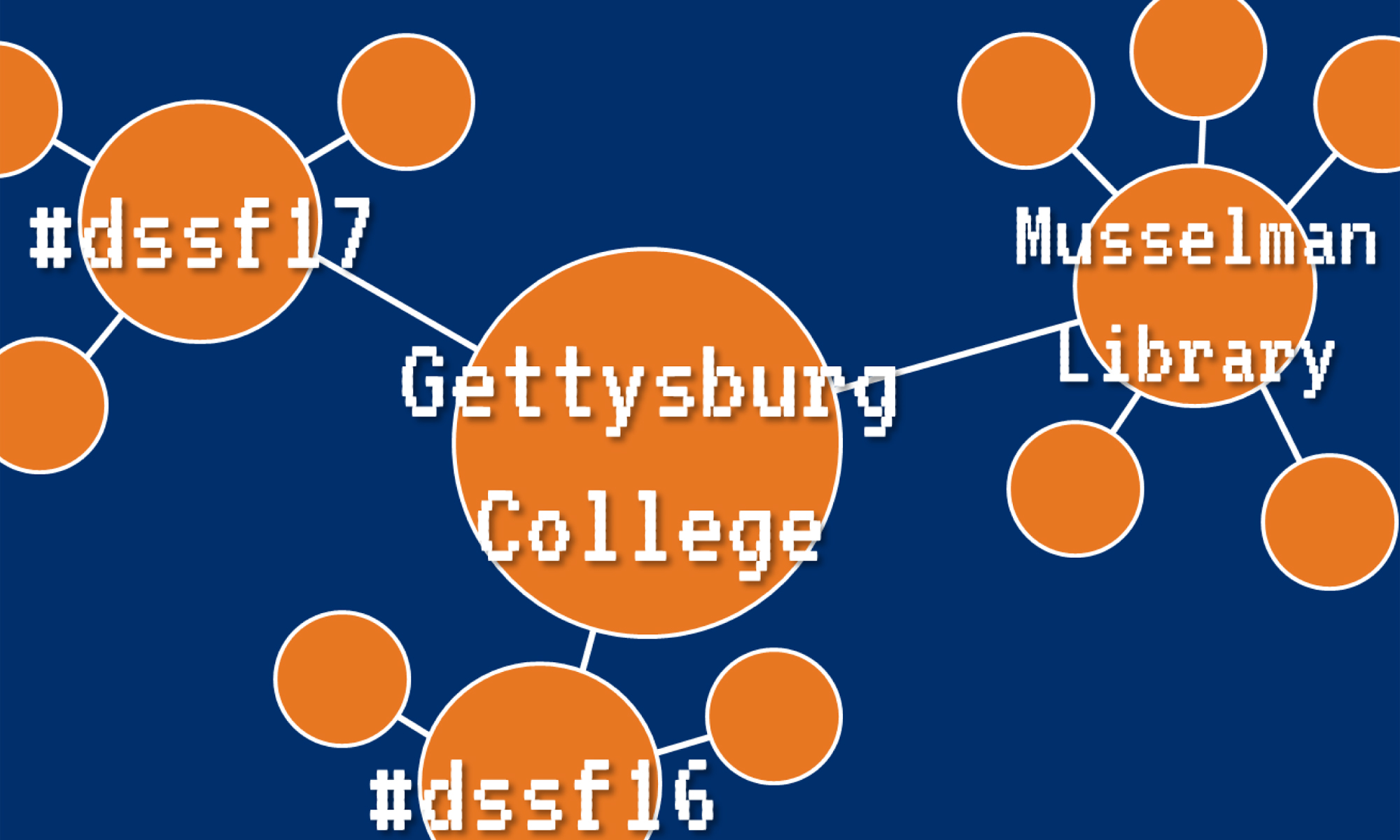Three hours of social time tonight, and a lunch spent lamenting the current state of politics in the United States. Things are certainly picking up.
We spent the first part of the day talking about why we’re here for DHSI, thinking about what projects we want to start, what courses we want to design, and what sorts of big picture infrastructure we want to create. This was very helpful to get a high-level overview of where everyone is, and look for places of overlap and how we can provide support for each other. In many ways, this class can function as a support group (and probably a bit of therapy) for all of us, as we are all in different places, yet we have a lot of common themes running through our roles and institutions. In the end, we are all going to have to do what works for us, but it’s good to reaffirm that none of us are where we want to be, and there are things we are all running up against. There’s a conversation about burnout in here as well, and the pressure that people doing DH work feel to constantly ramp up their work and produce results. That’s probably another post. But it’s a real thing, and something we share on varying levels.
For Gettysburg specifically, there are several projects I’d like to see moved to the next phase (or really just get started), but for the most part we are where we need to be for these projects (at the moment, anyway). We’re moving along with assignment redesign with two courses that are changing assignments in a digital direction with support of the Provost, and our involvement in a PCLA grant to support digital liberal arts fellows will give us some structure and accountability for how we are deploying the students that come out of the DSSF program. However, we still struggle with getting faculty interesting in doing DH work in the first place, but that’s not an uncommon problem. In fact, it’s better at this point to have a smaller cohort of faculty who we know and work well with in order to help build up what we are doing.
A theme that continues so far is that Gettysburg really doesn’t need a DH/DS center right now, but we do need some sort of formal structure in place to communicate and coordinate our activities. While good working relationships exist among those of us doing DH work right now, we need to be more intentional in how we plan, design, support, and maintain digital projects, developing a framework for project lifecycles and creating funnels that push projects to particular individuals and teams for consultations. This will help with assessment, evaluation, and preservation as we try to weave DH work into the curriculum and campus culture. Pulling the people together could be done with a working group or similar cohort on campus; while we have an educational technology committee that is faculty-led and campus-wide, it is far more focused on broader concerns about academic technology and not focused on DH work. There would be some overlap on this group, but it could have a different charge and mission. Much of our informal conversations could easily be transferred to a more structured and intentional setting, bringing in the appropriate people to help support it.
Process continues to be an important topic, and DH as process is something I appreciate and want to find ways to continue to develop. Process is harder to evaluate, assess. Its outcomes aren’t nearly as apparent, except for how it affects other outcomes. “Students will create a digital project in order to show mastery of digital humanities skills” is an outcome that still needs a product. While an effective process should result in this outcome, what if the process is more important? Can we assess the process based on the outcome? Angel spoke about finding ways to talk about DH process in a way similar to how scientists publish short papers, and I think this is very exciting for the larger DH community, especially for those of us who really need to understand how others do the work.

On another note, it was great to hear Greg Lord speak about narratives and video games today; despite it being a talk I have heard before, I get something new from it, and new ideas continue to emerge. Unfortunately, the narrative arc of being a bad enough dude to save the president has lost much of its luster since last November, but interrogating classic games to tease out the underlying narratives is a fun exercise in seeing how process and technology can drive story. I’m still interested in getting the DH+VG project off the ground to build a community that can think more critically and practically how games can be worked into DH, as well as trying to figure out how small liberal arts colleges can be more involved in game preservation. Playing DHQuest V3 was fun, and an example of how we can use game engines to drive interactivity.
On to Thursday!
